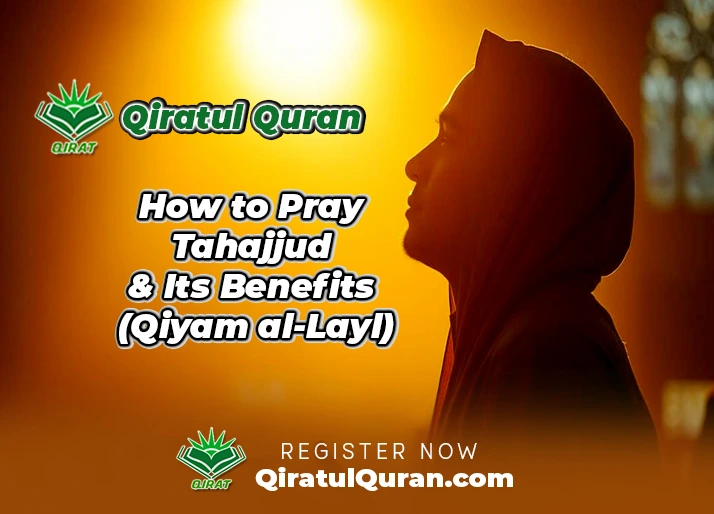
Islam for Beginners
Islam for Kids: Islam is the religion of Muslims or those who submit to God. Qiratul Quran will tell you, It is a monotheistic religion, meaning Muslims believe there is only one God. This God is known as Allah in Arabic. Muslims believe that Allah revealed his words to the Prophet Muhammad in the 7th century in the form of the Quran, Islam’s holy book. Muslims follow the teachings of the Quran as well as the examples set by Prophet Muhammad.
The core beliefs and practices of Islam include:
- Belief in one God, Allah
- Belief in angels of God, such as Gabriel
- Belief in holy books like the Quran, Torah, Psalms, and the Bible
- Belief in all the messengers and prophets of God, including Adam, Noah, Abraham, Moses, Jesus, and Muhammad
- Praying five times daily facing the Kaaba in Mecca
- Fasting during Ramadan, the 9th month of the Islamic lunar calendar
- Giving charity or zakat to the poor and needy
- Making a pilgrimage to Mecca called Hajj, if physically and financially able
These core tenets provide the foundation of the Islamic faith. Practicing and teaching them to children allows Muslim parents to pass on their beliefs and instill religiosity in their youth.
How to Teach Islam to a Child
Islam for Kids, Teaching Islamic beliefs and practices to children can begin early, even before formal schooling starts. Here are some tips for teaching Islam to Kids:
Start with the basics
Focus first on teaching the core beliefs like belief in one God, the prophets, the holy books, etc. Use simple language and repeat these principles.Set a good example
Live according to Islamic principles and let your manners, dress, speech, and actions be guided by the faith. Children will pick up cues from observing their parents.Make religious rituals part of a daily routine
Incorporate practices like the five daily prayers, reciting the Quran, fasting in Ramadan, etc. into the child’s schedule so they become habits. Do them together as a family.Use engaging resources
Get children’s books with colorful illustrations and easy-to-understand language to teach stories of prophets and morals. Use media like animated films on Islam. Play Islamic songs or nasheeds.Encourage questions
Allow children to ask questions to clarify anything they don’t understand. Answer patiently and make discussions fun.Make religious classes part of education
Enroll children in the weekend or after-school Islamic classes where they can learn formal religious instruction from teachers.Get involved at the mosque
Take children to the mosque for prayers and events so they feel part of the religious community. Let them make friends with other Muslim children.Travel on pilgrimages
Visit holy sites like Mecca and Medina to perform Umrah and Hajj. These trips will give kids first-hand experience of Islam’s major pilgrimages.What is the Child’s Right in Islam?
Islam grants various rights and protections to children in order to safeguard their interests. Some of the key children’s rights in Islam include:
Right to Life and Sustenance
Children have the right to life from the moment of conception. Abortion is generally forbidden, as is infanticide which was practiced before Islam. Parents are responsible for providing all the basic necessities like food, clothing, and shelter to their children.
Right to Parentage and Family Relations
Every child has the right to be associated with their parents and family relations must be maintained. Taking care of orphaned relatives is emphasized in Islam. Children should not be separated from both parents unless necessary.
Right to Inheritance
The Quran specifies shares of inheritance for children from the property of deceased parents. Generally, sons get twice the share that daughters get. But daughters still have a mandated right to inheritance.
Right to Education
It is obligatory for parents to provide education and training to their children. The Prophet Muhammad (PBUH) said seeking knowledge is mandatory for every male and female. This education involves both religious knowledge and worldly education.
Right to Healthcare and Welfare
Children must be protected from harm and provided proper healthcare. Early circumcision is considered essential. The state has an obligation to support children if parents face hardship and are unable to provide for them.
Right to Equality and Non-Discrimination
All children in Islam have equal status and rights. There should be no discrimination based on gender, race, nationality, or family background. The best among them are those with the best behavior and character.
What is Considered a Child in Islam?
Islam categorizes childhood into three main stages and defines parameters of behavior and responsibility for each stage:
Babies and Toddlers (under 7 years)
This is a period of innocence before a child can distinguish right from wrong. Parental guidance is crucial. The Prophet emphasized showing love and compassion to babies.
Older Children (above 7 years)
At this stage, children are trained in religious practices and manners. Formal education also begins. They must be disciplined for unacceptable behavior but with mercy. Harshness should be avoided.
Puberty and Adolescence
Puberty marks the transition into adulthood. Now religious duties like prayer, fasting, etc. become obligatory. Parents should guide their teens to avoid sins and focus more on the worship of God. They should also prepare them for the responsibilities of adulthood.
Summary About Islam for Kids
The exact age of Islam for Kids when each stage starts and ends may vary slightly for each child depending on physical and mental development. But these age parameters give a structure for fulfilling children’s rights in Islam at each stage of innocence, learning, and taking on more mature duties towards God.





